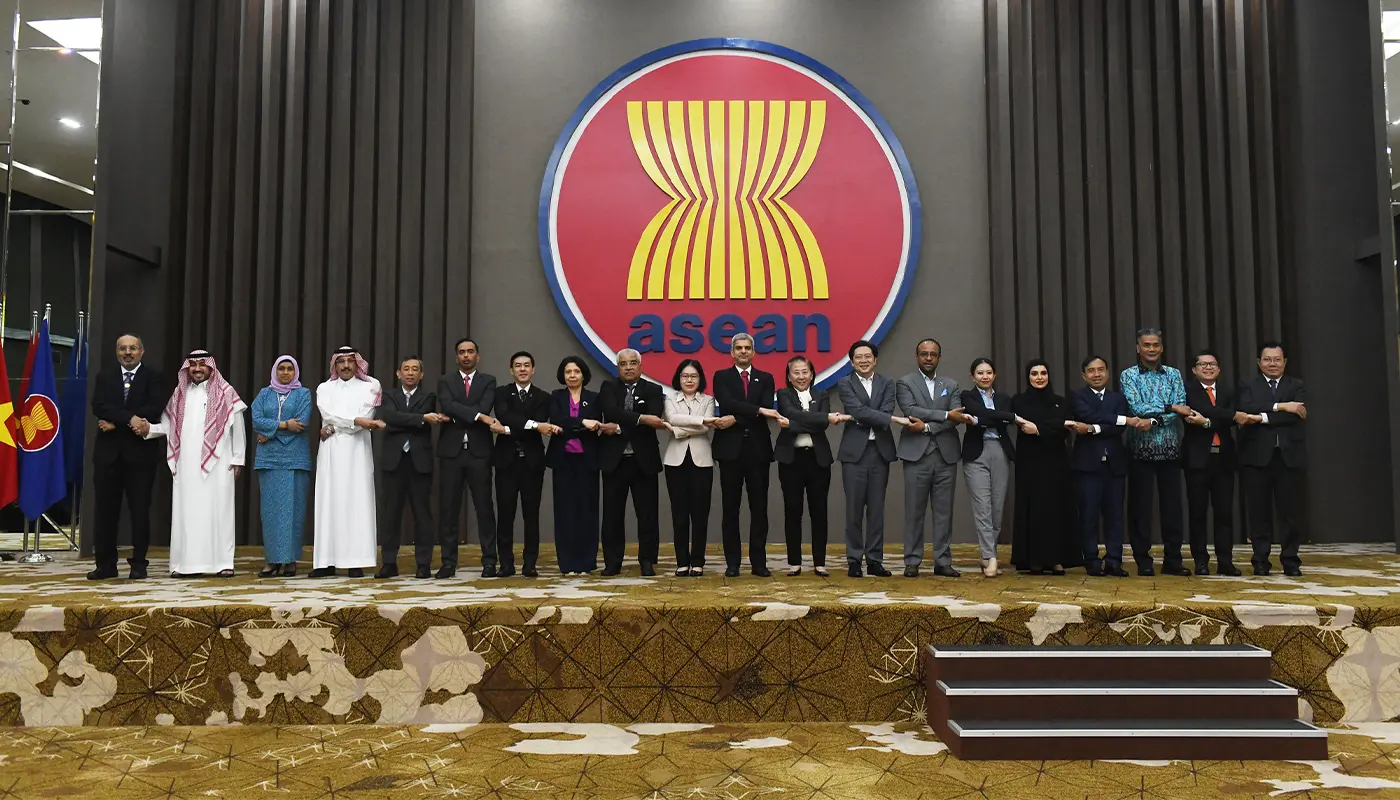Jakarta – Representatives from the Association of Southeast Asian Nations and the Cooperation Council for the Arab States of the Gulf met in Jakarta this week to reaffirm their commitment to intensify political, economic and technical cooperation under the ASEAN-GCC Framework of Cooperation.
The second formal meeting between the Committee of Permanent Representatives to ASEAN and the GCC Ambassadors’ Council took place at the ASEAN Secretariat, where delegates reviewed initial progress on implementing the 2024–2028 Framework of Cooperation and identified priority areas for further collaboration.
Officials highlighted a raft of possible joint initiatives, spanning trade facilitation, investment promotion, energy security, and cooperation on digital transformation and health resilience.
Delegates underlined that region-to-region ties could complement bilateral relationships and help both blocs navigate post-pandemic recovery and global economic uncertainties.
A senior GCC official referenced the long-standing contact between the two organisations, noting recent high-level interactions that have helped deepen mutual understanding.
The GCC Secretariat stressed that the relationship has evolved over several years and benefits from shared interests in stability, economic diversification and infrastructure development.
ASEAN officials said practical measures under the framework will be phased to match capacity and priorities across the two regions.
Workstreams discussed include mechanisms to boost private-sector linkages, streamlined logistics corridors, regulatory cooperation for investment protection, and sector-specific exchanges in renewable energy and food security.
Trade and investment figures were raised as an incentive to expedite cooperation, with participants pointing to the potential for stronger Gulf investment into Southeast Asian infrastructure and green energy projects, while ASEAN markets offer diversified consumer demand for Gulf exporters.
Delegates also discussed expanding people-to-people exchanges, including business delegations, academic ties and tourism promotion, as ways to cement long-term engagement.
Observers said the renewed emphasis on ASEAN-GCC relations fits a broader diplomatic strategy by both groupings to diversify partnerships and build resilience against geopolitical shifts.
Analysts noted the framework offers a structured channel for the two regions to coordinate on global issues such as food supply chains, energy transition and cross-border connectivity.
Officials concluded the session by agreeing on a roadmap of follow-up actions, including technical working groups and timetabled milestones to translate political endorsements into implementable projects.
Both sides described the meeting as a constructive step towards a more sustained, outcomes-driven partnership between Southeast Asia and the Gulf.
Sources: ASEAN Secretariat News







